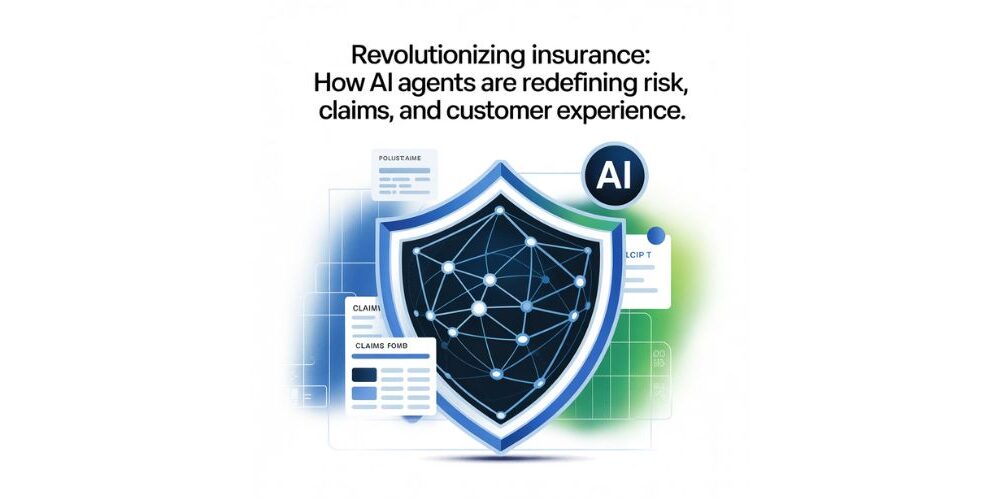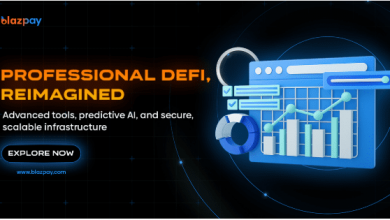Revolutionizing Insurance: How AI Agents Are Redefining Risk, Claims, and Customer Experience

In the dynamic world of enterprise finance, the insurance industry is undergoing a profound transformation, driven by the rapid adoption of Artificial Intelligence (AI). According to Avinash Terala, this technological shift is reshaping risk management, enhancing operational efficiency, and creating more personalized customer experiences. AI agents are revolutionizing how insurers assess risks, process claims, and engage with policyholders. These advancements are not just incremental improvements but rather fundamental changes that promise to significantly reduce costs and increase service quality across the sector.
AI Agents: The New Architects of Risk Management
AI integration in insurance transforms risk management by replacing traditional, human-driven methods with advanced data analysis. AI agents can process vast, complex datasets, including medical records, accident reports, and satellite imagery, creating more accurate and personalized risk profiles.
These systems also predict emerging threats, such as climate change or cybersecurity risks, enabling insurers to adjust policies dynamically. By leveraging machine learning, insurers can build real-time, evolving risk models, offering more competitive, relevant, and precise coverage in an increasingly complex world.
Fraud Detection: Precision at Scale
One of the most impactful innovations AI brings to insurance is its ability to detect fraud with unprecedented precision. In the past, fraud detection often relied on manual reviews and basic pattern recognition. Today, AI agents use advanced machine learning algorithms to spot fraudulent claims with remarkable accuracy, often identifying subtle inconsistencies that human adjusters might miss.
For example, AI systems now employ natural language processing (NLP) and optical character recognition (OCR) to analyze unstructured data, such as medical reports and photographic evidence, with accuracy rates exceeding 90%. These technologies also utilize anomaly detection to identify unusual patterns in claims, helping to prevent fraud before it results in financial losses. This transformation not only reduces fraudulent claims but also accelerates the processing of legitimate ones, creating a win-win situation for both insurers and their customers.
Personalized Customer Engagement: AI Makes Insurance More Human
AI in customer engagement has evolved to offer hyper-personalized experiences in insurance. By analyzing customer behavior across channels, AI predicts needs and crafts tailored communication strategies. It identifies opportunities for cross-selling and additional coverage, boosting satisfaction and retention. With AI managing routine inquiries, human agents can focus on complex or sensitive cases, providing policyholders with better attention and care.
AI’s Role in Operational Efficiency: Streamlining the Back-End
AI is revolutionizing operational efficiency in insurance by automating manual tasks like data entry and policy issuance. This frees up human workers for more complex decisions and streamlines claims processing, reducing time by up to 40%. With faster claim resolution, fewer errors, and improved customer satisfaction, AI helps insurers cut operational costs while enhancing existing workflows, allowing for optimization without disrupting core processes.
Looking Ahead: The Future of AI in Insurance
As AI continues to evolve, its potential in the insurance industry seems limitless. Moving forward, insurers will not only use AI for operational efficiency but will also leverage it to reimagine their entire business models. The ability to combine AI with emerging technologies like IoT and edge computing promises to create real-time, autonomous decision-making capabilities that will further streamline operations and enhance risk management.
However, this progress must be balanced with ethical considerations. As the technology becomes more sophisticated, so do the challenges related to data privacy, algorithmic bias, and regulatory compliance. Insurance companies will need to develop robust governance frameworks to ensure that AI systems are used responsibly and transparently, building trust with customers and regulators alike.
In conclusion, AI agents are ushering in a new era for the insurance industry. The integration of AI into risk management, fraud detection, customer engagement, and operational workflows is not just improving efficiency but fundamentally changing how insurance is delivered. As Avinash Terala highlights, insurers who embrace AI while navigating the ethical and regulatory landscape will be well-positioned to lead in the competitive market of the future. The future of insurance is not about choosing between human expertise and AI—it’s about creating a symbiotic relationship between both, leveraging their complementary strengths for a better, more efficient service.





